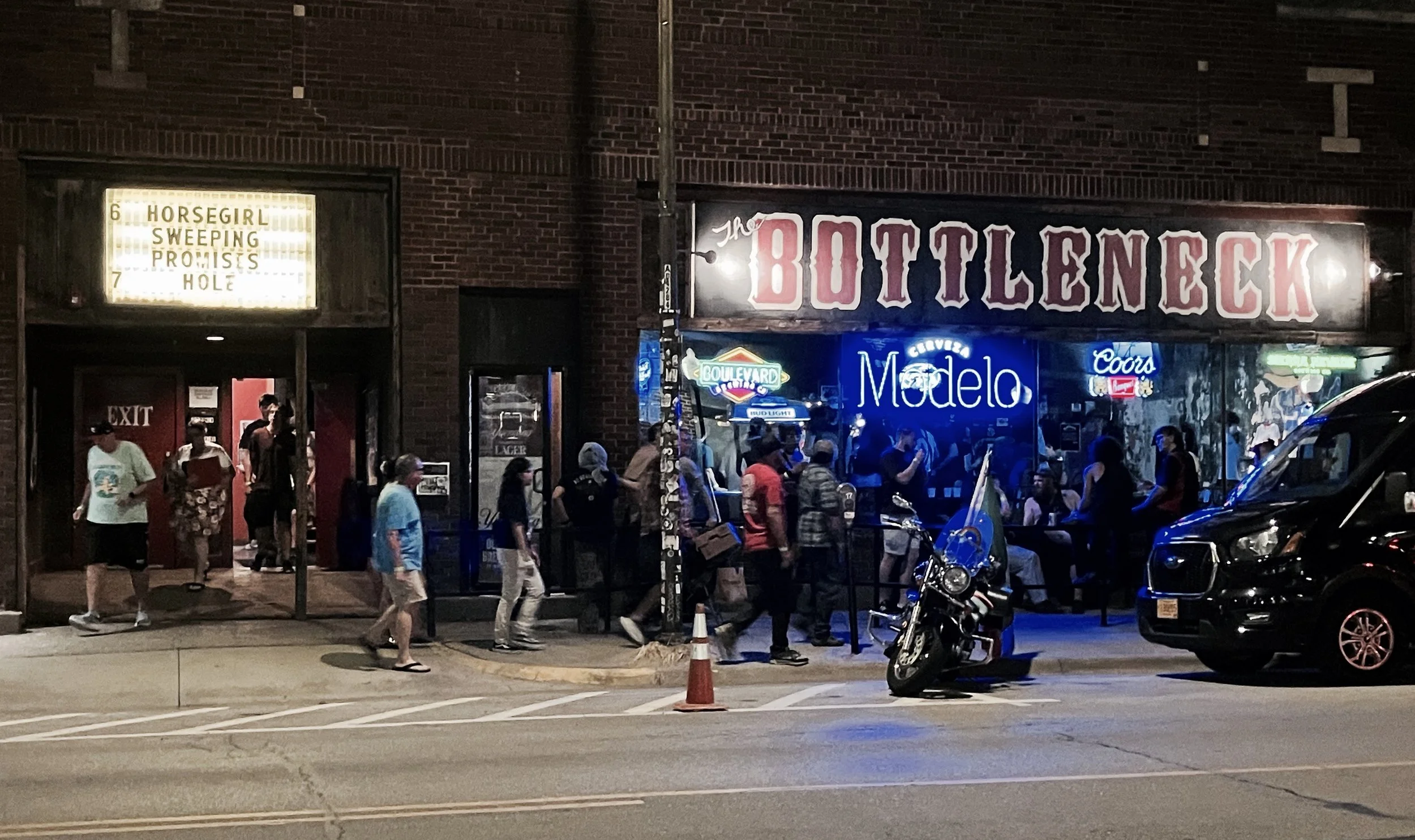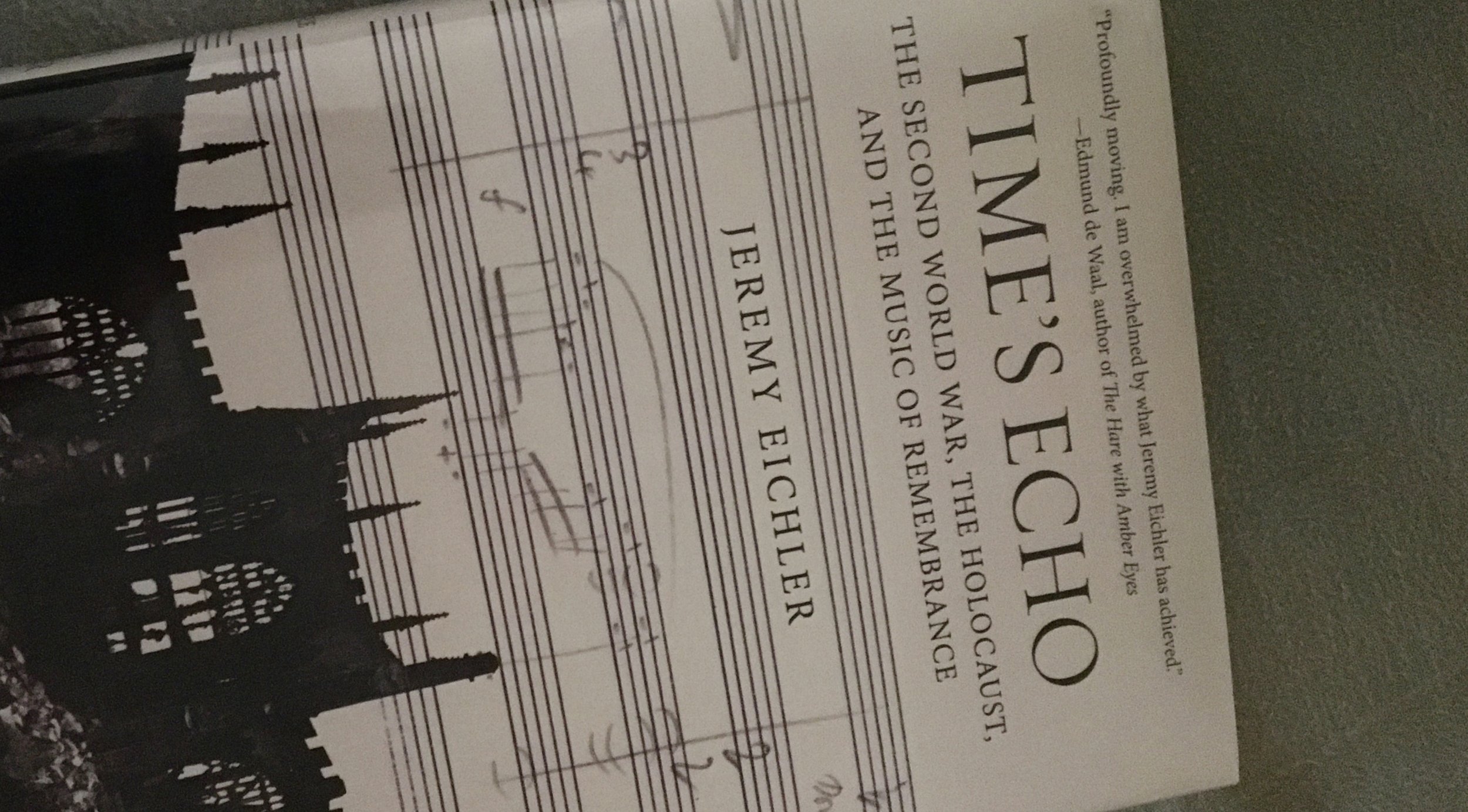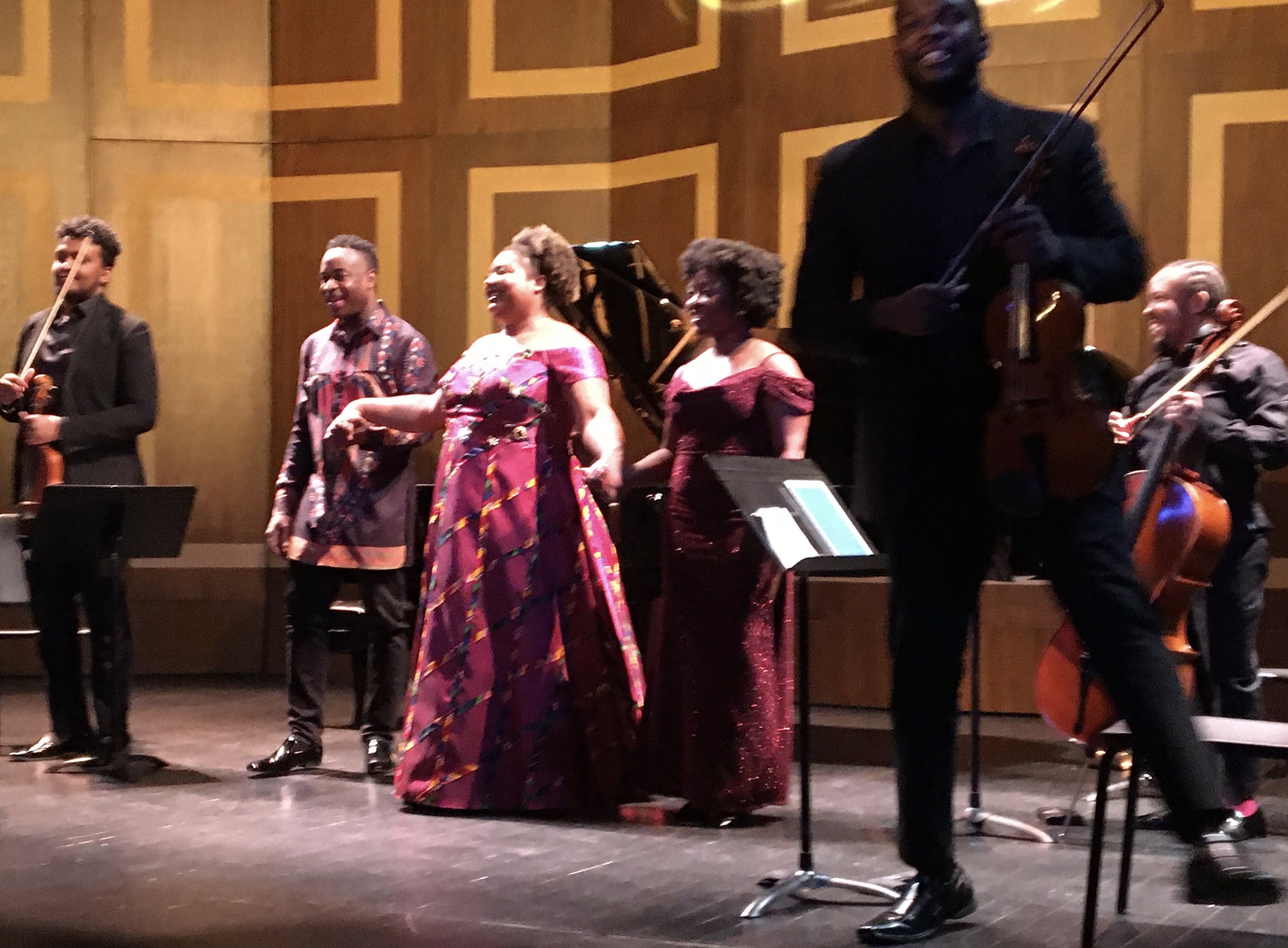Original image by There Stands the Glass.
I dedicated Wednesday, August 6, to questioning my taste in music. Having struggled to formulate a conclusive opinion on Horsegirl’s latest album since offering an indecisive review of Phonetics On and On in February, I drove to Lawrence, Kansas, to hear the band at the Bottleneck.
The Dream Syndicate provided the soundtrack to my 40-mile drive toward the setting sun. I have an opportunity to attend a date by the reunited band during an upcoming trip to the West Coast. I liked the Dream Syndicate in the early ‘80s but I was surprised to find its psychedelic guitar rock now repulses me. I’ll pass on the upcoming tour.
Godcaster was on stage when I walked into the Bottleneck. (I paid $28 for a ticket in advance to be part of the audience of more than 200.) I initially thought the Brooklyn collective was the worst touring band I’d seen in years. Although an excess of musicians never stopped playing at crosspurposes, I eventually succumbed to Godcaster’s art-rock spell.
Unconvinced by Sweeping Promises’ recordings, I hadn’t previously bothered to catch the Lawrence based trio live. I get it now! Its two albums don’t come close to doing Sweeping Promises justice. The unapologetically geeky band’s riveting outing made me regret not attending Gang of Four’s show at Knuckleheads in May.
Horsegirl didn’t attempt to match the high voltage energy of Sweeping Promises. Nora Cheng and Penelope Lowenstein are such reticent frontpersons that the only sound during the breaks between several songs came from oblivious revelers at the venue’s exit.
Their aloofness may be warranted. Playing to an audience dominated by weird old men (ahem) who’d seen Horsegirl antecedent the Feelies perform at the same space in 1986 had to be disconcerting. My two takeaways: the trio’s songs were sadder than anticipated and its vocals were even more delectable than on record.
I listened to Richard Strauss’ "Simfonia Domestica" while driving home. Having recently read Barbara Tuchman’s essay about Strauss in The Proud Tower, I was eager to hear the composer’s poorly reviewed 1903 piece. For the first and only time on August 6, I agreed with the critical consensus.





